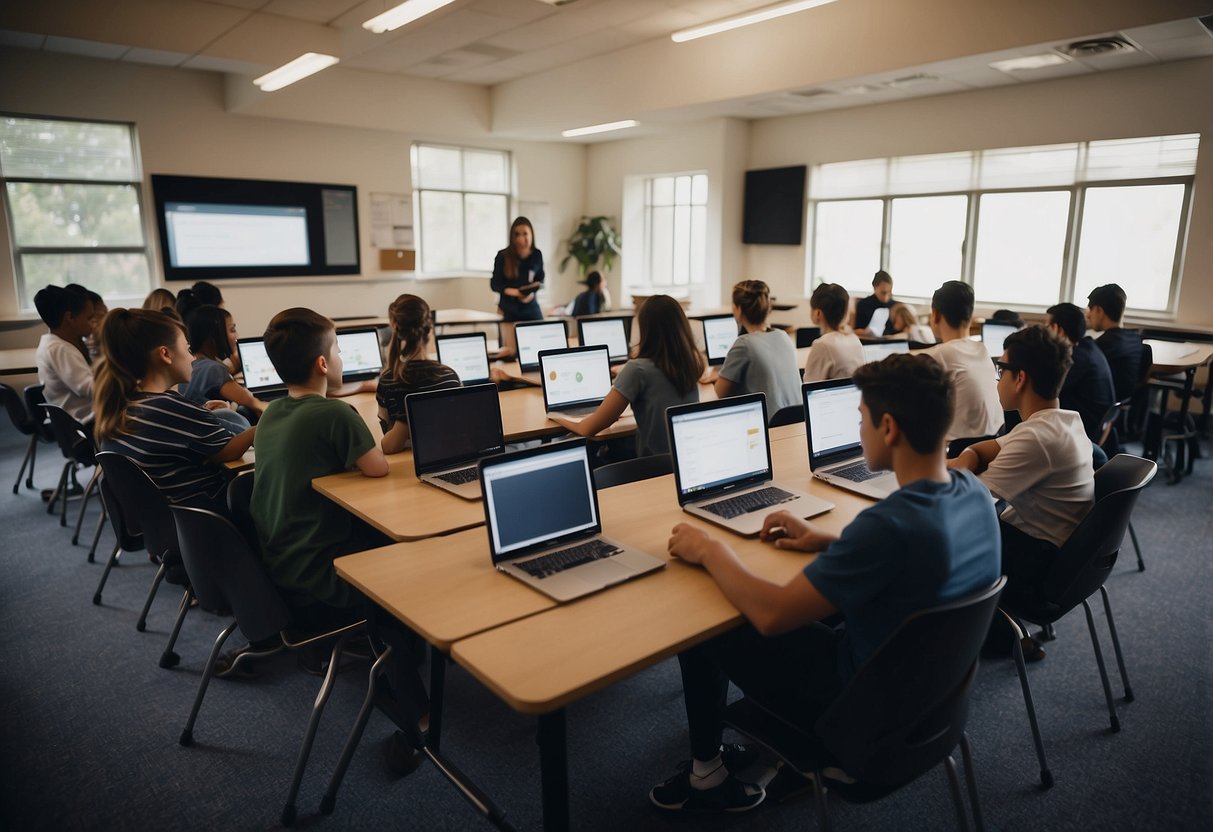
Fostering Essential Skills for the Future
Education technology plays a vital role in fostering essential skills for the future by enabling the development of both soft skills and critical thinking, as well as enhancing collaboration through technological tools.
Developing Soft Skills and Critical Thinking
Modern education increasingly emphasizes soft skills such as communication, empathy, and adaptability. Technology facilitates this by providing platforms for interactive learning, virtual collaboration, and real-time feedback. Online discussion forums, for instance, allow students to express their ideas and engage with diverse perspectives, honing their communication skills.
Critical thinking is also nurtured through technology. Educational apps and games challenge students to solve problems, think critically, and make decisions based on evidence. Simulations and virtual labs offer hands-on experience in a controlled environment, encouraging analytical thinking and problem-solving abilities.
Therefore, technology integration in education fosters essential skills, ensuring students are well-prepared to face future challenges confidently.
Building Collaboration Through Technology
Technology provides various tools that enhance collaborative learning experiences. Platforms like Google Classroom and Microsoft Teams enable students to work together on projects seamlessly, regardless of their physical locations, fostering teamwork and collaboration.
Video conferencing tools facilitate real-time communication, allowing for virtual group discussions and presentations. These tools help break down geographical barriers, encouraging a more inclusive and diverse learning environment. Additionally, shared documents and collaborative software enable collective problem-solving and idea generation, further enhancing collaborative skills.
By incorporating these tools into the classroom, educators can prepare students for a workforce that increasingly values teamwork and collaboration, ensuring they are equipped with the necessary skills to thrive in their future careers.
The Future of EdTech Advancements
Educational technologies are rapidly evolving, with particular advancements in artificial intelligence and classroom integration. These innovations are reshaping learning experiences and methodologies.
Generative AI in Curriculum Development
Generative AI is transforming curriculum development through its ability to analyze educational data and generate personalized learning materials. By evaluating students’ performance and learning styles, AI can create tailored lesson plans that cater to individual needs. This adaptability ensures that each student receives a more effective and engaging education.
Moreover, generative AI can assist educators by automating administrative tasks, freeing up time for more interactive and meaningful teaching. It also helps in predicting trends and identifying gaps in the curriculum, making it possible to update educational content dynamically. These capabilities make generative AI a powerful tool in modern education.
Next-Gen Technology in the Classroom
Next-generation technology in classrooms includes tools like augmented reality (AR), virtual reality (VR), and interactive smartboards. AR and VR provide immersive learning experiences, allowing students to explore complex concepts in a more engaging and intuitive manner. For instance, history students can virtually visit ancient civilizations, and science students can perform virtual lab experiments.
Interactive smartboards replace traditional chalkboards, enabling real-time collaboration and interaction. These boards can display multimedia content, provide interactive lessons, and support group activities. Such technologies foster a more engaging and collaborative learning environment, enhancing student participation and making lessons more accessible and enjoyable.
By integrating these advanced technologies, education systems can improve both teaching efficiency and student outcomes.